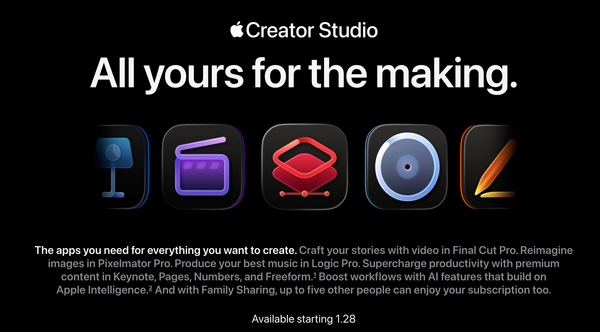The Truth About Success Stories: Why Hard Work Isn’t the Whole Story
Hard work is only part of the story. This piece uncovers how survivorship bias, privilege, and pure luck shape most of the “success stories” we’re sold.

Why Following Success Stories Might Be the Worst Advice You’ll Ever Take
Success stories are everywhere these days, and they all seem to follow the same cliche formula: hard work, discipline, and a “secret” that anyone can replicate.
But there’s a problem with this narrative: it’s often incomplete.
What’s left out of these stories is just as important as what’s included. Luck, timing, privilege, and who knows how many other unseen factors play a far greater role in their success than most people are willing to admit.
Yet, we’re sold the idea that success is a direct result of effort alone.
This is the massive misconception that we are faced with regularly: we mistake correlation for causation.
Success and methods often arrive together, but don’t confuse passengers with drivers.
This phenomenon is everywhere.
Fitness influencers sell you supplements while hiding their PED use.
Entrepreneurs credit their morning routines while ignoring the market conditions or connections that gave them a significant head start.
Even the writers on Medium constantly publish articles that claim you just need to fix these few things, and all of a sudden, you unlock the formula for a six-figure income from writing.
Conveniently glossing over the unique circumstances that made their success possible, or even just the fact that it might’ve just been plain luck.
The goal of this article isn’t about dismissing hard work, it's about understanding its limits. We’ll explore why most success advice is flawed, how survivorship bias and correlation traps mislead us, and how to filter out the noise to focus on what truly matters for your own path.
The Correlation Trap: Why Success Stories Mislead
We’ve all heard the phrase “correlation doesn't equal causation.” Simply put, just because two things happen together doesn't mean one causes the other.
For example, imagine someone eats a specific food every day and suddenly wins the lottery. It would be absurd to claim the food caused their win, but this kind of flawed thinking is everywhere in success stories.
Hard work is often at the center of these narratives and for a good reason: it’s a massive contributor to success. But hard work alone doesn't always guarantee results.
Many people work tirelessly at their jobs, hobbies, or passions without seeing meaningful progress.
Consistency, another key factor, can also fall short. Plenty of people show up every day, put in the effort, and still don’t achieve their goals.
So, if hard work and consistency aren’t always enough, what are these success stories really selling?
For many, their “secret” to success is simply a byproduct of their own circumstances. Maybe they stumbled on a ritual or habit that coincided with their breakthrough. From their perspective, that habit becomes a key part of their success story.
But here’s the problem: they package that habit as a universal formula, selling it to others as the “golden ticket” to success. This creates a dangerous cycle of misinformation, where correlation is mistaken for causation, and the real factors that actually contributed to their success, luck, timing, and privilege, are all ignored.
The False Formula In Action
Let’s take a hypothetical example. Imagine a YouTuber claims they’ve discovered the “secret” to getting views. They say they were once struggling just like you, until they found the magical solution: adding two periods at the end of their video titles. That’s it. That’s the formula.
At first, a few people see the video as they struggle with the same problem, try it out, and see no results. Maybe they chose to comment on how it didn’t work, or maybe ask if they were doing something wrong.
Which helps the creator’s video still get engagement. Comments, views, and shares. Whether positive or negative, this engagement creates a feedback loop, making them seem legitimate. As more people watch and engage, the creator’s success grows, reinforcing their belief that their “formula” works.
This might seem harmless, but it’s not.
What they’ve done is invent their own “golden key” to success, a way to appear gifted or knowledgeable without actually being so. While it might work for them in the short term, it creates long-term harm for both the creator and their audience.
The Harmful Effects of the Correlation Trap
- For the Creator:
- False Confidence: They begin to genuinely believe their method is the reason for their success, ignoring the real factors like coincidence, timing, luck, or platform algorithms.
- Unquestionable Authority: Their results give them confidence, making it hard for anyone to challenge their narrative. They double down on their flawed advice, spreading it further.
2. For the audience:
- Misdirection: Aspiring creators or professionals waste time and energy following a method that doesn’t work; they might not be the wiser, as they are early in the process.
- Disillusionment: When the method fails, they blame themselves, thinking they didn’t work hard enough or weren’t consistent enough.
- Lost Potential: Some may abandon their goals entirely, believing they’re not “gifted” enough, or maybe it just wasn’t meant for them. When in reality they were simply misled, taking away something from someone who could’ve likely found great success otherwise.
The correlation trap is pervasive because it’s easy to fall for. Success stories are seductive, they make us believe there’s a clear, replicable path to achieving almost anything. But more often than not, these stories are built on a foundation of coincidence, not causation.
The Role of Luck, Privilege, and Other Unseen Factors
Success isn’t just about hard work, it often depends on factors outside of our control. These hidden variables are rarely acknowledged in success stories, but they play a critical role:
- Luck and timing:
Success often hinges on being in the right place at the right time, paired with the ability to seize the opportunity. While pure luck, like winning the lottery, is random, preparation and hard work can position you to capitalize on lucky breaks. Examples include market conditions, trends or viral moments that no can predict or replicate. - Survivorship Bias:
We only hear from the winners, not the countless others who follow the same path and fail. It’s rare for someone to publish their failures, let alone have them live online forever. Success stories are told after the fact, giving them a level of legitimacy. Think of it like a lottery winner writing a guide on “How to pick the right numbers.” It’s absurd, but this is how many success stories are framed. - Privilege and Hidden Advantages:
Many successful people had access to resources, networks, or opportunities that others didn’t. The classic “garage startup” story often leaves out key details: years of prior experience, a loan to get started, or the ability to recognize and exploit market demand. These hidden advantages are rarely acknowledged but often make all the difference. - The Invisible Ladder:
Success is relative. Some people start higher up the ladder due to circumstances like family wealth, early exposure to skills, or access to better resources. Others start lower, with fewer tools and opportunities. The journey isn’t the same for everyone, even if the destination looks similar.
Why These Factors Are Ignored:
Stories of underdogs “making it” are far more compelling than tales of people who had everything set up for them. Admitting the role of luck or privilege risks discrediting the “self-made” narrative, turning success into coincidence rather than effort.
How To Filter Success Advice: What Actually Works
Now that we’ve explored the traps, the problems they cause, and why they happen, the next step is figuring out what’s actually worth learning, applying and trusting.
Success isn’t a quick-fix formula or a “get rich quick” scheme, it's a combination of factors that prepare you to capitalize on opportunities when luck strikes. Here’s how to filter advice and focus on what truly works:
- Stop Looking for Formulas:
- Success isn’t a single “secret” or shortcut. If you’ve struggled with something long enough, chances are others have too, and there’s rarely a fix-all solution.
- Avoid advice that promises quick results or oversimplifies complex problems. Instead, focus on longer, more difficult solutions that address and deconstruct the bigger dilemma.
2. Seek Problems, Not Solutions:
- Counterintuitive as it may sound, look for advice that addresses the cons rather than the pros.
- People who focus on pain points often provide more realistic insights than those selling fixes. Be wary of anyone who uses problems as a setup to sell their “magic solution.”
3. Compare and Contrast:
- If multiple experts address the same pain point with different approaches, that pain point is worth acknowledging.
- By sifting through their proposed solutions and navigating your own path, you’re more likely to find success in the average of their answers than in any single one of their singular “golden methods.”
4. Be Your Own Expert:
- You are the final voice. Only you can create hacks or solutions tailored to your unique circumstances.
- If dozens of articles point to the same pain point, that’s a sign everyone struggles with it. Use that knowledge to craft your own remedy or approach.
This article isn’t a formula for success or a golden method for debunking success myths. Its goal is to call out a narrative that’s become far too prevalent in today’s world, especially in industries like fitness, content creation, and entrepreneurship.
As these narratives rise in popularity, it’s becoming harder to distinguish authentic advice from fantasy.
Don’t take anything you read on the internet at face value. Always try to paint a fuller picture, question the narrative, and approach every step with critical thinking.
Conclusion:
Success isn’t just about the results, it’s the sum of all its parts, each given meticulous attention.
Think of it like a pizza, the final product is only as good as the quality of its ingredients, the care in its preparation, and the balance of flavors.
Frozen pizza just isn’t as good as a hand-made one.
True success comes from understanding the complexity of the process, not chasing shortcuts or formulas. Focus on the principles, adapt them to your circumstances, and build your path.


